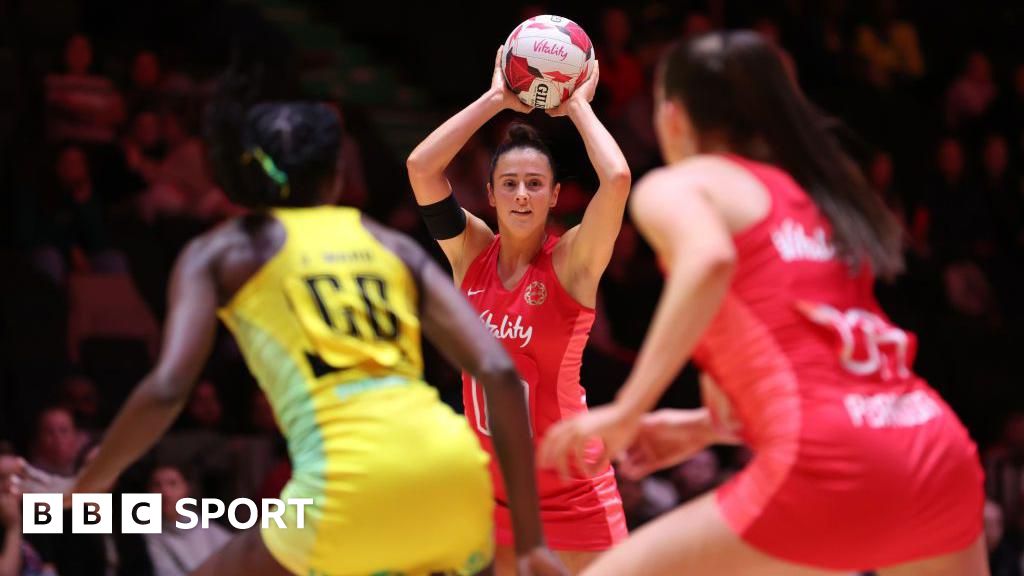Gambling
The odds of gambling research | Sports

How the Concordia Research Chair on Gambling and its affiliates protect vulnerable players
“Sometimes you win five dollars. Sometimes you win a free ticket. Most of the time, you win nothing,” said Dr. Jeff Derevensky.
“But what we know from behavioural psychology is that if you reinforce people’s behaviour intermittently, they will continue that behaviour,” said Derevensky, who is the director of the McGill International Centre for Youth Gambling Problems and High-Risk Behaviours.
Gambling represents the Quebec government’s second-largest revenue stream, after alcohol. In 2023, Loto-Québec raked in nearly $3 billion from its casinos, lotteries, online betting spaces and beyond; this income is often accumulated at the expense of addiction.
“Gambling is not an ordinary commodity,” said Dr. Sylvia Kairouz from the department of sociology and anthropology at Concordia University. “It’s a commodity that we cannot just consume and continue to consume without eventual harm.”
Kairouz has held the Concordia Research Chair on Gambling since 2012. Research Chairs are awards offered to exceptional scholars to help them grow their field. The award grants large funding sums—in Kairouz’s case, $100,000 annually over five years—with conditional renewal depending on results.
“The gambling industry used to see researchers like myself [and Dr. Kairouz] like Darth Vader, and today they see us as Yoda,” Derevensky joked. “The gambling industry has embraced research. We’re working together to try and minimize the problem.”
In the 2000s, Kairouz’s academic findings in the field of alcohol and tobacco addictions allowed her to push the growing field of gambling research in a new direction: social epidemiology. In other words, Kairouz was interested in gambling as a public health issue, and how societal conditions could impact gamblers at different structural levels.
“The gambling field was overstudying the individual psychological aspects,” Kairouz said. “I wanted the social aspects to have a bigger voice, and my critical positioning was oriented towards that. It’s not only the individual that is responsible for their gambling addiction. There’s a whole ecosystem around it.”
With Kairouz’s leadership, the Chair grew into a hub for gambling research and continues to sustain many gambling research projects focused on sociocultural determinants of gambling and gambling problems. Currently, these include an analysis of gambling in Kahnawake’s First Nation communities and a survey on video lottery terminals (VLTs)–-also known as “video” slots, a particularly instantaneous and addictive type of gambling—across Montreal.
The Chair also provides important opportunities for early-career researchers working in the field.
Dr. Adèle Morvannou, working out of the Université de Sherbrooke’s medical and health sciences faculty, is one such researcher. A clinical psychologist trained in France, Morvannou returned to Canada for her doctoral studies but was unable to seek government funding due to her nationality.
“If there hadn’t been the Chair, I wouldn’t have had a grant, I wouldn’t have completed my postdoctorate,” Morvannou said.
Currently, an important part of Morvannou’s research explores the behaviours of women who gamble, which are often different from those of men.
“It’s two sets of behaviours, two sets of motivation,” Morvannou said. “Men and women also live through the impact and consequences of gambling differently as well.”
According to Morvannou, men tend to seek adrenaline and ways to prove their skills and defeat challenges. They tend to prefer sports gambling or table games like poker. Women look to gambling to cope with difficult situations, and to relieve stress or boredom. They distract themselves through games of chance like bingo, slot machines and different forms of lottery.
While shame and stigma around gambling affect all genders, the public views cis-gendered women who gamble more negatively than cis-gendered male gamblers, due in part to ongoing gendered expectations.
“We still expect women to be the caregivers in their families,” Morvannou said. She explains that mothers may be scrutinized for prioritizing gambling over their loved ones.
In Quebec, the government has a monopoly over gambling, which is overseen by the Régie des alcools, des courses et des jeux. As such, the government has two conflicting objectives: to protect its population but also to ensure one of its most lucrative sectors runs smoothly.
“At some point, more weight is given to one aspect over the other, [and that is currently] the profit and revenues, because that is bringing money to the state,” Kairouz said.
Last year, Loto-Québec’s financial results were at a 20-year high, despite the economic context. With the rise of online betting spaces, it’s easier than ever to gamble—and to develop gambling problems. According to a 2022 Statistics Canada study, over two-thirds of Canadians gamble. To encourage safe and responsible gaming, gamblers are protected by safeguards or measures, which are informed by or flat-out recommended by researchers like the Chair’s.
For example, in 2023, Loto-Québec announced that it would not open 300 VLTs in the open space facing the Bell Centre. Kairouz and the Chair influenced this decision.
“We collaborated with Montreal Public Health and provided all the research and evidence showing that […] beyond the money [it would have] generated, the space could be a real harm for the population,” Kairouz said.
Kairouz has also been fighting to establish a regulating body for gambling in Quebec.
“You need an authority outside the government that should overlook the market, say what should be done, and then make sure that there is compliance,” Kairouz said. “The government acknowledged the recommendation [for a regulator], but I have been working in this field for 20 years and nothing has changed.”
A current local gambling issue is the over-presence of addictive VLTs in low-income Montreal neighbourhoods.
“A child that is living in a poor environment has more chances to see those machines than a child that is in a wealthy environment on the Island of Montreal,” Kairouz said. “We have to regulate. Should we keep those machines available in those neighbourhoods, knowing the risk that they represent for young people, but also for the population in general?”
Unregulated gambling in video games—which can be stealthily presented as “gaming” or entertainment instead of gambling—also affects young people in search of escapism. Indeed, the digital evolution of gambling is rapid and ongoing.
A major challenge researchers face is keeping up with the sheer speed of this evolution, as player behaviours and associated risks evolve in tandem.
“With research about the impact of COVID, for example,” Morvannou said, “there was really a shift, with players moving to gamble online. The results of these studies are interesting and being published now, but it’s 2024, and this happened in 2020.”
Sports betting is an area of gambling that has boomed with online spaces. As a result, governments across the world are now in a ‘crackdown’ phase, attempting to implement measures such as banning celebrity sponsorships, and sports gambling advertising. Earlier this year, a law was passed in Ontario–the only province in Canada to allow private gambling companies to offer sports betting–banning athletes from featuring in gambling-related advertising. The results aren’t completely efficient. For example, due to a legal loophole, sports stars like hockey players Wayne Gretzky and Connor McDavid still appear in BetMGM commercials under the guise of promoting “safer gambling.” In Quebec, sports betting is part of the provincial lottery system run by Loto-Québec.
Ultimately, the Chair researchers advocate for additional regulation—especially in uncontrolled digital spaces—and government intervention when necessary. But for their research to impact policy, the collaboration between researchers, labs and universities is vital. Academics at the Chair have collaborated with national and international gambling research teams, including the Observatoire français des drogues et des toxicomanies or the Harvard Medical School’s Cambridge Health Alliance, among others. Not only is collaboration a means of sharing data and resources, it also increases the impact and visibility of research, allowing for a more effective impact on policy.
“We feel like we are on the same ship, supporting a shared cause,” Morvannou said about working with other researchers. “Working together means our research holds more weight, more strength, and that helps us fully follow through on our project and propose innovative solutions.”
This article originally appeared in Volume 45, Issue 4, published October 22, 2024.









